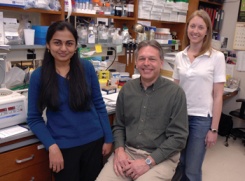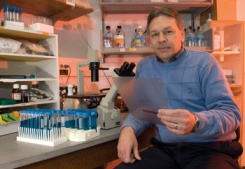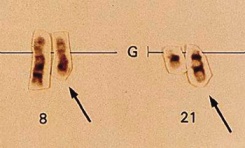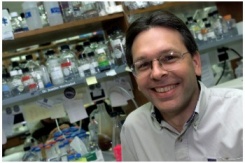Study examines good, bad sides of anti-cancer agents
Melissa Marino
April 18, 2008
Compounds known as “HDAC inhibitors” exhibit cancer-killing activities in cultured cells. While they are currently being tested as anti-cancer agents in clinical trials, just how they execute their effects is unclear.
In a pair of recent papers, Vanderbilt-Ingram Cancer Center investigators provide a potential mechanism by which HDAC inhibitors specifically damage cancer cells and offer clues about possible adverse effects of these compounds — findings with important implications for their clinical use as cancer therapies.
HIebert to lead VICC basic science efforts
Dagny Stuart
February 22, 2008
Scott Hiebert, Ph.D., has been named associate director for Basic Science Programs atVanderbilt-Ingram Cancer Center.
Hiebert, professor of Biochemistry and Leader of the Signal Transduction and Cellular Proliferation Program, succeeds Jennifer Pietenpol, Ph.D., who was recently named director of the Cancer Center.
Mechanism behind acute leukemia identified by VUMC researchers
Mary Beth Gardiner
August 9, 2002
A fusion protein resulting from a faulty DNA exchange plays a key role in the development of acute leukemia in humans, Vanderbilt researchers reported recently. The protein, called AML1-ETO, disarms a tumor suppressor and allows circumvention of a powerful tumor checkpoint, freeing cells to experience uncontrolled growth and an extended lifespan.
Investigator digs for genetic clues to cause of acute leukemias
Leigh Macmillan
October 29, 1999
Vanderbilt-Ingram Cancer Centerresearchers have uncovered another clue in the mystery of how chromosomal translocations cause acute leukemias.
Their findings suggest new treatment possibilities for these cancers of the bone marrow and blood.



